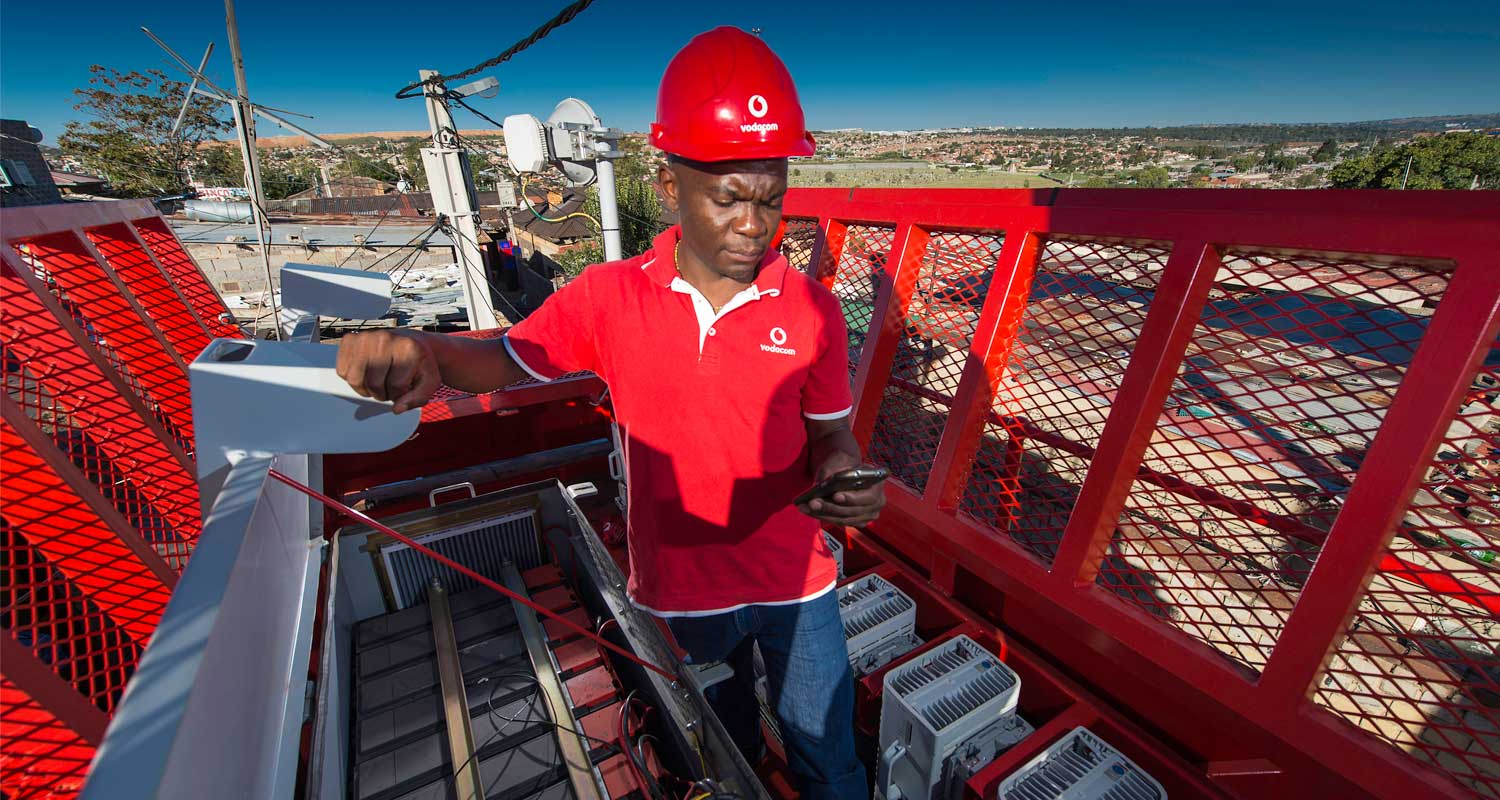 Vodacom South Africa has warned that communications regulator Icasa’s plan to implement spectrum sharing via a dynamic spectrum allocation framework lacks long-term commercial viability – at least for now.
Vodacom South Africa has warned that communications regulator Icasa’s plan to implement spectrum sharing via a dynamic spectrum allocation framework lacks long-term commercial viability – at least for now.
Vodacom’s comments follow a request for input from Icasa as the regulator seeks to initiate experimental trials for dynamic spectrum sharing and opportunistic access to spectrum in South Africa.
Company spokesman Byron Kennedy said Vodacom is pleased that Icasa is not opening up current broadband spectrum bands for dynamic spectrum sharing (DSS), but cautioned nevertheless that the technology is “experimental”, with “no sustainable business models being evident globally”.
“We have asked Icasa to conduct an economic feasibility study in order to understand the prospects of sustainability in the South African environment,” he said.
TechCentral reported in June that Icasa had asked the ICT industry to supply it with information regarding incumbent users of the 3.8GHz-4.2GHz and 5.925GHz-6.425GHz frequency bands and the type of systems that could be used to manage dynamic spectrum access in those frequencies. The regulator intends to use this information to create a “regulatory sandbox” for experiments that will inform its governance framework for managing dynamic spectrum sharing in South Africa.
The rationale for sharing spectrum dynamically, as opposed to the “static” model used in South Africa until now, is improved efficiency in how spectrum is utilised. In the current model, an entity – such as a television broadcaster or a mobile network operator – is assigned a block of spectrum that no one else is allowed to touch. In practice, this leads to wastage because not all the spectrum is always utilised everywhere and all the time.
TV white spaces
Icasa’s move to explore dynamic spectrum sharing is in line with international trends. South Africa’s first foray into DSS was through the allocation of “TV white spaces” (TVWS) – the unused portions of spectrum assigned to television broadcasters – to provide wireless internet services to rural and outlying communities. Vodacom said there is no evidence that TVWS initiatives have gained any significant traction.
“While there are several DSS proponents globally, there currently appears to be limited evidence of sustainable business models in this area, and even less so in the South African context. For example, there is no clear evidence that the recent TVWS licensing process has achieved any measure of significant scale or mass market appeal,” said Kennedy.
Read: Keep your mitts off our spectrum: MultiChoice
Dynamic spectrum allocation requires a database to keep track of users of spectrum in a given area and what those users are doing with it. This information is used in conjunction with cognitive radio technology – wireless devices that scan the landscape and determine which communication channels are being used and which are not.
“Cognitive radio as a technology has not yet matured enough to provide meaningful coordination between network technologies. A thorough analysis needs to be done to determine the technical feasibility of the power limits, potential services and other elements of DSS prior to assigning the temporary spectrum on a dynamic sharing basis,” said Kennedy.
 Dynamic spectrum sharing models work well on the assumption that users of spectrum will not change the way in which they use it. But services – and the technical standards used to deploy them – tend to evolve over time. For mobile operators, changes in signal propagation standards from 3G, 4G and 5G – and eventually 6G – necessitate changes to how they deploy spectrum. This can lead to complications if other users are sharing an operator’s assigned block of frequencies.
Dynamic spectrum sharing models work well on the assumption that users of spectrum will not change the way in which they use it. But services – and the technical standards used to deploy them – tend to evolve over time. For mobile operators, changes in signal propagation standards from 3G, 4G and 5G – and eventually 6G – necessitate changes to how they deploy spectrum. This can lead to complications if other users are sharing an operator’s assigned block of frequencies.
“It is critical that Icasa develops effective means to prevent ‘spectrum squatting’ – the refusal to vacate a band or part thereof once lawfully instructed to do so, which could develop when a DSS operator becomes unwilling to abandon an area that the primary licensee has decided to expand into,” said Kennedy.
Like Vodacom, Telkom South Africa is also in favour of Icasa’s spectrum-sharing plans, provided some technical issues are properly attended to.
“If properly designed, implemented and enforced, dynamic spectrum sharing can improve the efficient use of spectrum in selected frequency bands. One challenge that could hinder this is the availability of accurate and up-to-date real-time information about incumbent services,” Telkom told TechCentral.
Telkom also has concerns about the enforceability of the regulatory regime Icasa eventually uses to manage dynamic access to spectrum. Adherence to sharing rules and technical parameters is critical to protecting incumbent users within shared bands, it said.
MTN South Africa said it has “noted the gazetting of Icasa’s request for information” and is considering the document, and declined to comment further. – © 2024 NewsCentral Media




